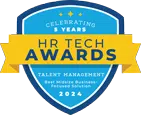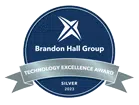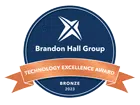First-of-its-kind technology and approach in talent management that utilizes contextual AI to help employees, managers, and people leaders build a highly engaged, high-performance organization.
- Agentic AI
-
Products
Elevate
PerformanceEnable
DevelopmentInnovative
Enhancements - Industries
-
Resources
Product
ResourcesLearning
ResourcesOther
ResourcesFeatured
Resources - Pricing
- Pricing























